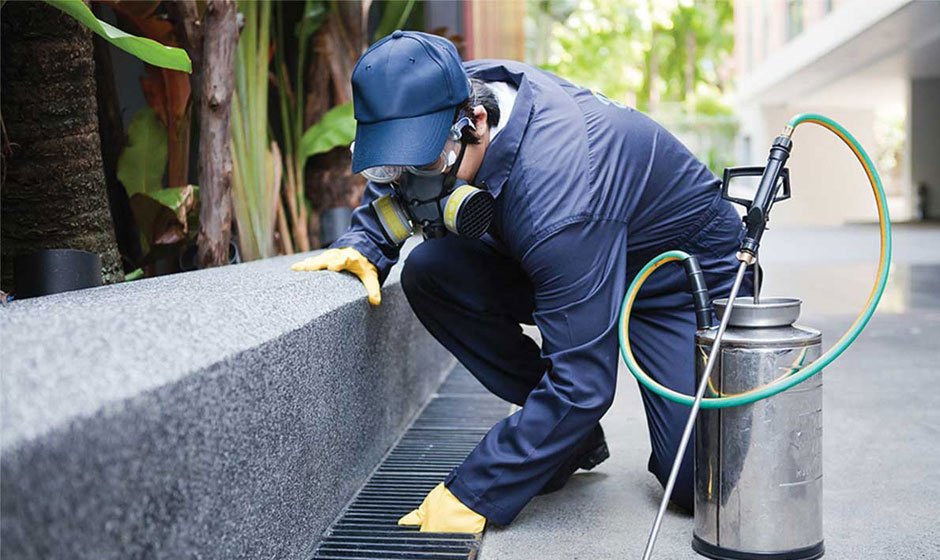Hiring the Right Pest Control Service

Introduction
The intrusion of pests can quickly turn the haven of your home or the productivity hub of your business into a nightmare. From scurrying rodents to pesky insects and wildlife, the threats posed by pests go beyond inconvenience, encompassing structural damage and potential health hazards. While the internet may offer a plethora of DIY solutions, the imperative of hiring a professional pest control service cannot be overstated. This article embarks on a comprehensive exploration of the key considerations in selecting the ideal pest control service, ensuring your living and working spaces remain safe and pest-free.
Signs of Pest Infestation
Before delving into the intricacies of professional pest control, recognizing the subtle signs of an infestation is paramount. From telltale droppings to unexpected pet behavior changes, these signs should not be ignored. The dangers of neglecting these warning signals underscore the urgency of taking swift action.
Why Professional Pest Control Matters
While there’s a myriad of do-it-yourself remedies circulating online, the unparalleled efficacy of professional pest control services cannot be overstated. These experts bring a wealth of knowledge, advanced treatments, and a commitment to safety standards that surpass most amateur endeavors. Beyond the immediate resolution of the issue, the long-term cost savings offered by professionals make them a wise investment.
Factors to Consider When Hiring Pest Control Services
Selecting the right pest control service involves a meticulous evaluation of several factors to ensure a solution that is not only effective but also safe.
- Licensing and Certification: Ensure the pest control company is licensed and certified, guaranteeing adherence to industry standards.
- Experience in Handling Specific Pests: Different pests demand specialized treatments. Opt for a company with a proven track record in handling the particular pests troubling you.
- Integrated Pest Management (IPM) Approach: Look for a service provider employing an Integrated Pest Management approach, ensuring a comprehensive strategy that goes beyond mere extermination.
- Eco-Friendly and Safe Practices: Prioritize companies committed to eco-friendly practices, assuring the safety of your family, pets, and the environment.
- Customized Treatment Plans: Effective pest control is tailored to the unique characteristics of your property. Seek a provider willing to conduct a thorough inspection and design a customized treatment plan.
Questions to Ask Potential Pest Control Companies
Asking the right questions during the evaluation process is crucial for making an informed decision.
- Inquiry about Licensing and Credentials: Begin by confirming the company’s licensing and credentials, establishing their legitimacy and expertise.
- Methods and Products Used: Understand the methods and products utilized by the company, ensuring they align with your environmental and safety preferences.
- Guarantees and Warranties: Inquire about guarantees and warranties, showcasing the company’s confidence in the effectiveness of their treatments.
- Treatment Plans and Frequency: Gain clarity on the proposed treatment plans and their frequency, providing insight into the steps involved and the expected timeline for resolution.
- References and Customer Reviews: Don’t underestimate the power of references and reviews. Hearing about the experiences of others can provide invaluable insights into the company’s reliability and effectiveness.
Importance of Inspection and Evaluation
The cornerstone of professional pest control lies in a meticulous inspection and evaluation process. Beyond identifying visible signs of infestation, this comprehensive assessment delves into pinpointing entry points, nesting areas, and contributing factors, laying the foundation for targeted and effective treatment plans.
Common Pest Control Methods and Techniques
The arsenal of pest control professionals includes various methods and techniques, each carefully selected based on the type of pest and the extent of the infestation.
- Chemical Treatments: Chemical treatments are common for insect control, utilizing targeted agents for effective extermination.
- Biological Pest Control: Employing natural predators or parasites for pest management, this eco-friendly method minimizes the use of chemical agents.
- Mechanical Pest Control: Utilizing physical interventions like traps and barriers, this method provides targeted control without heavy reliance on chemicals.
- Preventive Measures: Prevention forms a crucial part of pest control, involving measures such as sealing entry points and proper waste management to deter pests.
Eco-Friendly Pest Control
An evolving trend in pest control emphasizes environmentally friendly practices, reflecting a growing awareness of the impact of traditional methods on the ecosystem.
The Role of Home and Business Owners in Pest Control
While professionals play a significant role, property owners also share responsibilities in maintaining a pest-free environment.
- Maintenance Practices to Prevent Infestations: Regular maintenance, including fixing leaks and sealing cracks, reduces the likelihood of pest infestations.
- Regular Inspections and Early Intervention: Promptly addressing issues discovered during regular inspections prevents minor pest problems from escalating.
- Collaboration with Pest Control Professionals: A collaborative approach involves following recommendations, implementing preventive measures, and communicating openly about any concerns.
Handling Specific Pest Infestations
Diverse pests demand tailored approaches for effective elimination. Whether dealing with rodents, insects, or wildlife, professional pest control companies adapt strategies to suit the unique characteristics of each infestation. For instance, some homeowners may wonder, are millipedes poisonous—while they can secrete irritating fluids, they are generally harmless to humans.
Choosing the Right Pest Control Service for You
Selecting the right service provider requires a thoughtful assessment of your specific needs and preferences.
- Assessing Your Pest Control Needs: Understand the nature and extent of your pest problem to choose a service provider with expertise in handling your specific issues.
- Comparing Service Packages: Compare offerings from different companies, considering services, treatment plans, and costs to make an informed decision.
- Making an Informed Decision: Armed with information, make a decision based on credentials, methods, customer reviews, and alignment with your preferences.
Conclusion
In conclusion, the significance of hiring the right pest control service cannot be overstated. By conducting thorough research, asking the right questions, and assessing your specific needs, you can make an informed decision. Don’t wait until pests take over – call today for proactive pest management and a future free from pest-related worries. Your peace of mind is worth the investment.



